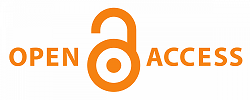THE INFLUENCE OF OUR SCHOOLS REDUCING WASTE PROGRAM (KURASSAKI) ON STUDENTS 'PHBS IN THE PILOT PROJECT SCHOOL OF BAPPEDA, TANGERANG DISTRICT, INDONESIA
Abstract
Observations on several school and community environments in Tangerang Regency where the problem of waste has not found the right solution. The school environment becomes one of the biggest waste-producing agents every day. The behavior of the community and school members towards waste is one of the factors in creating a Clean and Healthy Behavior (PHBS). The incidence of diseases caused by PHBS is still high. The most common illnesses occur because of a lack of understanding of PHBS, especially those related to environmental cleanliness, this happens because PHBS in Indonesia has only reached a percentage of 56.58%(Kemenkes RI, 2018). The purpose of this study was to determine whether the Kurassaki program (Reducing Waste Our Schools) had an effect on the PHBS of students at the Pilot Project School of the Regional Development Planning Agency (Bappeda) Tangerang Regency. This type of research is a quantitative study with a Quasi-experimental research design. The sampling technique uses stratified random sampling. The sample in this study were 175 respondents in the experimental group and 183 respondents in the control group. This research instrument using a questionnaire. Based on the Mann-Whitney test, the p-value is 0.000 <0.05, it can be concluded that "H1 is accepted", which means that there is an influence of the Kurassaki program on student PHBS at the Bappeda Pilot Project school in Tangerang Regency. Based on the research results, it can be concluded that the implementation of the Kurassaki program in schools has a positive effect on PHBS students and makes students more concerned about the environment.





